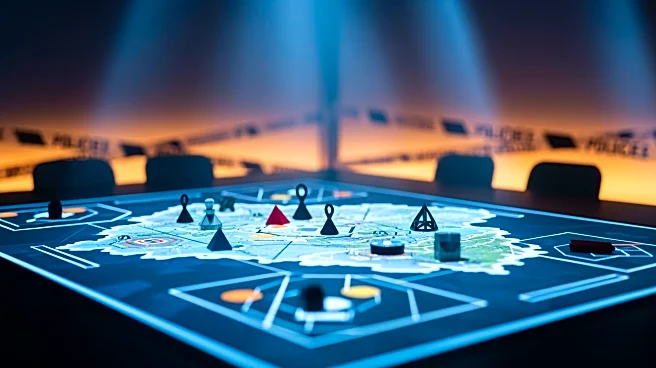What's Happening?
A recent analysis suggests that wargaming, a simulation tool traditionally used for military strategy, could be adapted to prepare for modern crises such as cyberattacks, AI-driven misinformation, and geopolitical tensions. The method involves participants
taking on roles to simulate real-world scenarios, revealing gaps and stress points in systems. The UK government has identified 26 chronic risks that threaten national security and economic resilience, advocating for collaborative responses across sectors. Wargaming offers a structured way to explore 'what if' scenarios and improve decision-making.
Why It's Important?
The adaptation of wargaming to modern crises is crucial as it provides a proactive approach to managing complex and interconnected threats. By simulating potential scenarios, policymakers and industry leaders can identify vulnerabilities and develop strategies to mitigate risks before they materialize. This method could enhance national security, economic stability, and social cohesion by fostering collaboration and innovation in crisis management. The insights gained from wargaming could inform policy decisions and drive investments in resilience-building initiatives.
What's Next?
The expansion of wargaming to non-military contexts could lead to the development of new research agendas and experimental designs tailored to specific risks. Governments and organizations may increase their use of wargaming to stress-test systems and improve preparedness for emerging threats. This could result in the establishment of dedicated wargaming centers and increased funding for related research and development. As awareness grows, wargaming could become a standard practice in strategic planning across various sectors.
Beyond the Headlines
The use of wargaming for modern crises highlights the evolving nature of security and the need for innovative approaches to risk management. It raises ethical considerations about the balance between privacy and security, particularly in scenarios involving AI and cyber threats. This development could influence cultural perceptions of safety and resilience, encouraging a shift towards more proactive and collaborative approaches to crisis management.















